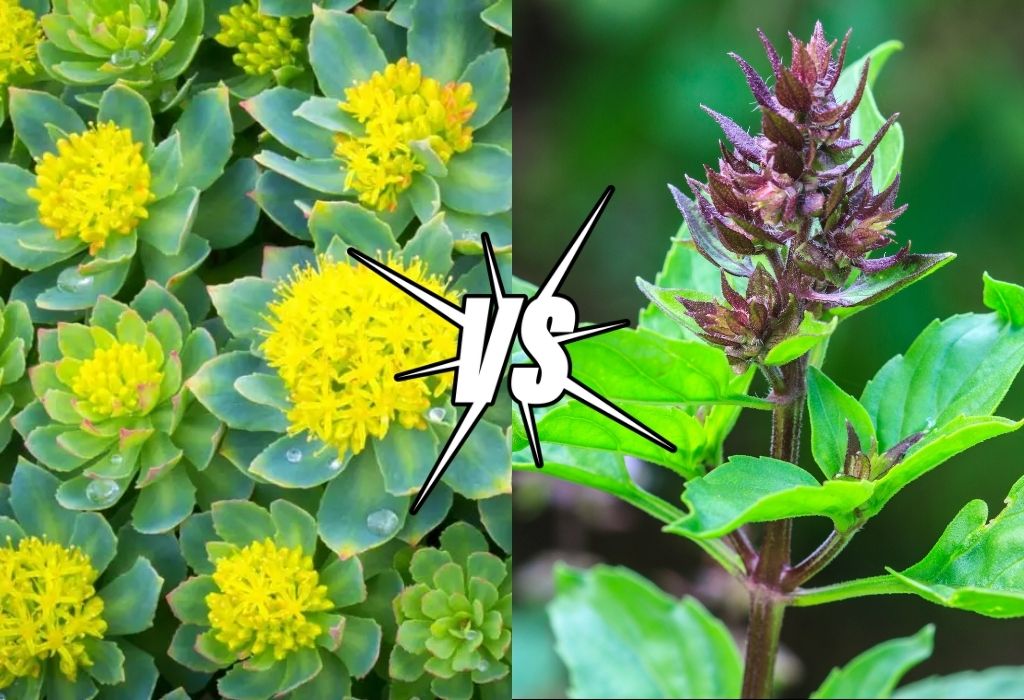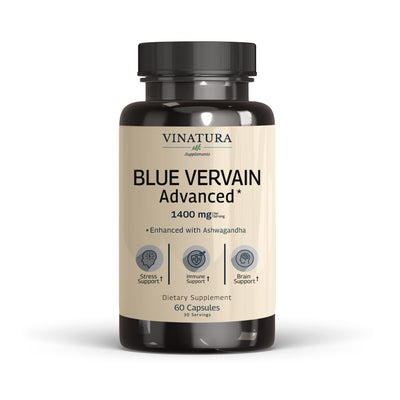
Rhodiola Vs. Holy Basil: Which Adaptogen Is Better For Stress?
Rhodiola and Holy Basil are popular adaptogenic herbs known for their stress-reducing properties. However, each has its advantages and disadvantages. For instance, Rhodiola can boost energy and improve mood, while Holy Basil can help reduce stress and improve overall health. Therefore, the choice between these products primarily depends on your personal needs. Let's explore this topic further.
Before exploring further, please read the disclaimer located at the end of this webpage.
Key Takeaways
- Rhodiola Rosea: Suitable for improving mood, increasing energy, and enhancing stress resilience.
- Holy Basil: Suitable for those looking to reduce stress, boost the immune system, protect overall health, and improve heart health.
- Rhodiola Vs. Holy Basil can be combined, but the dosage should be monitored for safety.
Rhodiola Vs. Holy Basil: Which Adaptogen Is Better For Stress?
Both Rhodiola and Holy Basil are effective in reducing stress. However, your better option will depend on your needs and health conditions.
Rhodiola is often used to enhance mood, energy, and cognitive function, while Holy Basil is commonly used to reduce stress, boost the immune system, and protect the liver.
To understand more about these two adaptogens, you can read further below.
What Are Rhodiola Rosea's Benefits and Side Effects For Health?

Rhodiola rosea, also known as "golden root" or "Arctic root," is widely distributed in the mountainous regions of Europe and Asia. It has been used in traditional medicine to stimulate the nervous system, reduce depression, enhance work performance, alleviate fatigue, and prevent altitude sickness [1].
Rhodiola rosea has been researched and recognized as an adaptogen that can reduce stress and increase resistance to various types of stress.
Rhodiola Rosea may help combat stress, depression, fight cancer, protect cardiovascular health, and strengthen the nervous system.
Studies also show it can improve conditions such as decreased work performance, sleep difficulties, loss of appetite, irritability, high blood pressure, headaches, and fatigue [1]. It helps boost energy and significantly improve cognitive function.
Read more: Rhodiola Vs. Bacopa: What are the Differences Between Them?
The dosage of Rhodiola Rosea in scientific studies ranges from as low as 100 to 170 mg per day to as high as 1500 mg per day [1], [2]. The dosage may also vary depending on the purity of the extract.
If you want to use Rhodiola long-term, the best start is a few weeks before a stressful period and continue throughout the stressful phase.
However, if you want to use Rhodiola acutely, such as before an exam or athletic competition, you must take three times the normal dose [1].
Rhodiola is considered a safe herb with many benefits. However, it still has some side effects when taken in high doses or when the body is not yet adapted.
Taking high doses (1.5-2.0 grams) can cause some people to feel stimulated and have trouble sleeping.
Other potential side effects include restlessness, insomnia, headaches, and nausea.
What Are Holy Basil's Benefits And Side Effects On Health?

Holy Basil is a powerful antioxidant widely used to manage stress and anxiety. Research has evaluated the effects of Holy Basil on health. A study was conducted with 100 volunteers divided into two groups: one took Holy Basil capsules, and the other took a placebo.
The results showed that Holy Basil extract could help reduce stress, improve sleep quality, and lower cortisol (a hormone produced during stress). The improvement in the Holy Basil group was better than in the placebo group [3].
Holy Basil is an adaptogen, helping the body adapt to physical and mental stress.
Holy Basil could be an alternative to caffeine, significantly enhancing alertness and mental clarity. Moreover, it does not have the side effects associated with caffeine.
Although insufficient research exists to establish a standard dosage for Holy Basil, existing studies provide some suggestions.
- Neurological disorders: 300 mg of ethanolic leaf extract daily for 30 days [4].
- Stress: 1000 mg of Orthophytum sanctum extract daily for 8 weeks; 1200 mg of Ocimum tenuiflorum extract daily for 6 weeks [4].
One of the side effects of using Holy Basil is the risk of reduced sperm production [5]. Other common side effects include nausea and diarrhea.
Rhodiola Vs. Holy Basil: What's the Difference Between Them?
I will summarize the differences between Rhodiola and Holy Basil in the following table:
|
Characters |
Rhodiola |
Holy Basil |
|
Mechanism of Action |
Acts on the central nervous system, boosting energy and stress resilience |
Acts on the immune and endocrine systems (reducing cortisol), helping the body reduce inflammatory responses and improve overall health. |
|
Benefits |
Improves mood, reduces anxiety, boosts energy, enhances cognitive performance. |
Reduces stress, boosts the immune system, protects the liver, and has anti-inflammatory properties. |
|
Suitable for |
Those looking for an adaptogen to improve mood, enhance focus, and boost cognitive function. |
Those looking for an adaptogen to reduce stress, boost the immune system, and protect the liver. |
Comparison table of Rhodiola and Holy Basil
Also, remember that Rhodiola and Holy Basil can interact with certain medications, so consult your doctor before using them.
Can You Take Rhodiola And Holy Basil Together?

You can use Rhodiola and Holy Basil to enhance overall health, but pay attention to the dosage. Due to their stress-reducing properties, combining them can significantly improve mental health and boost energy levels. However, you should not combine these herbs on your own.
Some products on the market already combine these herbs, but this is done through specific scientific research. Therefore, before you combine Rhodiola and Holy Basil, ensure they are used in the correct dosage and are suitable for your body.
It is best to consult a doctor or nutritionist before using these two herbs simultaneously.
Read more: Rhodiola Vs St John's Wort: Can You Take Them Together?
Conclusion
Rhodiola and Holy Basil are highly effective herbs for reducing stress and improving health. They can be excellent natural solutions for you. However, depending on your specific needs, you will decide which is most suitable and brings the best results for you. Additionally, don't forget to relax and improve your diet and lifestyle for sustainable mental health.
Read more:
- 15 Best Rhodiola Rosea Supplements 2024
- Ginkgo Biloba vs Rhodiola Rosea: Which Adaptogen is Right for You?
- How Long Does Rhodiola Stay In Your System?
References
- [1] Kelly G. Rhodiola Rosea: A Possible Plant Adaptogen. https://altmedrev.com/wp-content/uploads/2019/02/v6-3-293.pdf.
- [2] Williams TD, Langley HN, Roberson CC, Rogers RR, Ballmann CG. Effects of Short-Term Golden Root Extract (Rhodiola rosea) Supplementation on Resistance Exercise Performance. International journal of environmental research and public health/International journal of environmental research and public health. 2021;18(13):6953-6953. doi:https://doi.org/10.3390/ijerph18136953.
- [3] Lopresti AL, Smith SJ, Metse AP, Drummond PD. A randomized, double-blind, placebo-controlled trial investigating the effects of an Ocimum tenuiflorum (Holy Basil) extract (HolixerTM) on stress, mood, and sleep in adults experiencing stress. Frontiers in nutrition. 2022;9. doi:https://doi.org/10.3389/fnut.2022.965130.
- [4] https://www.facebook.com/Drugscom. Holy Basil Uses, Benefits & Dosage Herbal Database. Drugs.com. Published 2024. Accessed June 19, 2024. https://www.drugs.com/npp/holy-basil.html.
- [5] Holy Basil Herbal Monographs from Restorative Medicine. Restorative Medicine. Published 2024. Accessed June 19, 2024. https://restorativemedicine.org/library/monographs/holy-basil/.
Author

Product Disclaimer
Including an ingredient or study does not evaluate, endorse, or recommend any Vinatura product or any third-party product. Some ingredients discussed may not be used in any Vinatura product.
The content of the articles has not been evaluated by the Food and Drug Administration (FDA) and is not intended to promote or endorse any specific product. Any products sold on this website are not intended to diagnose, treat, cure, or prevent any disease.
Opinions and Endorsements
Any claims, statements, or opinions expressed in the articles are those of the author(s) and do not necessarily reflect the views or opinions of the manufacturers of the dietary supplement products. The products sold on this website are separate from the content of the articles and are not directly endorsed or associated with the information presented here.
Liability Disclaimer
The author(s) of the articles, website, and manufacturers of the dietary supplement products do not assume any liability for any potential consequences arising from the use of the information provided in the articles. Ingredient effects, dosages, and safety vary by individual, formulation, and context; some ingredients interact with medications or may be unsuitable during pregnancy or lactation. It is recommended that individuals consult with a qualified healthcare professional before making any dietary or lifestyle changes, including the use of dietary supplements.
Product Usage
Please refer to the product labels and packaging for specific usage instructions and guidelines for the dietary supplement products sold on this website.
Customer Support
For any concerns or questions regarding the dietary supplement products, please contact our customer support team, who will be more than happy to assist you.





Leave a Comment
Be the first to comment.
What do you think?